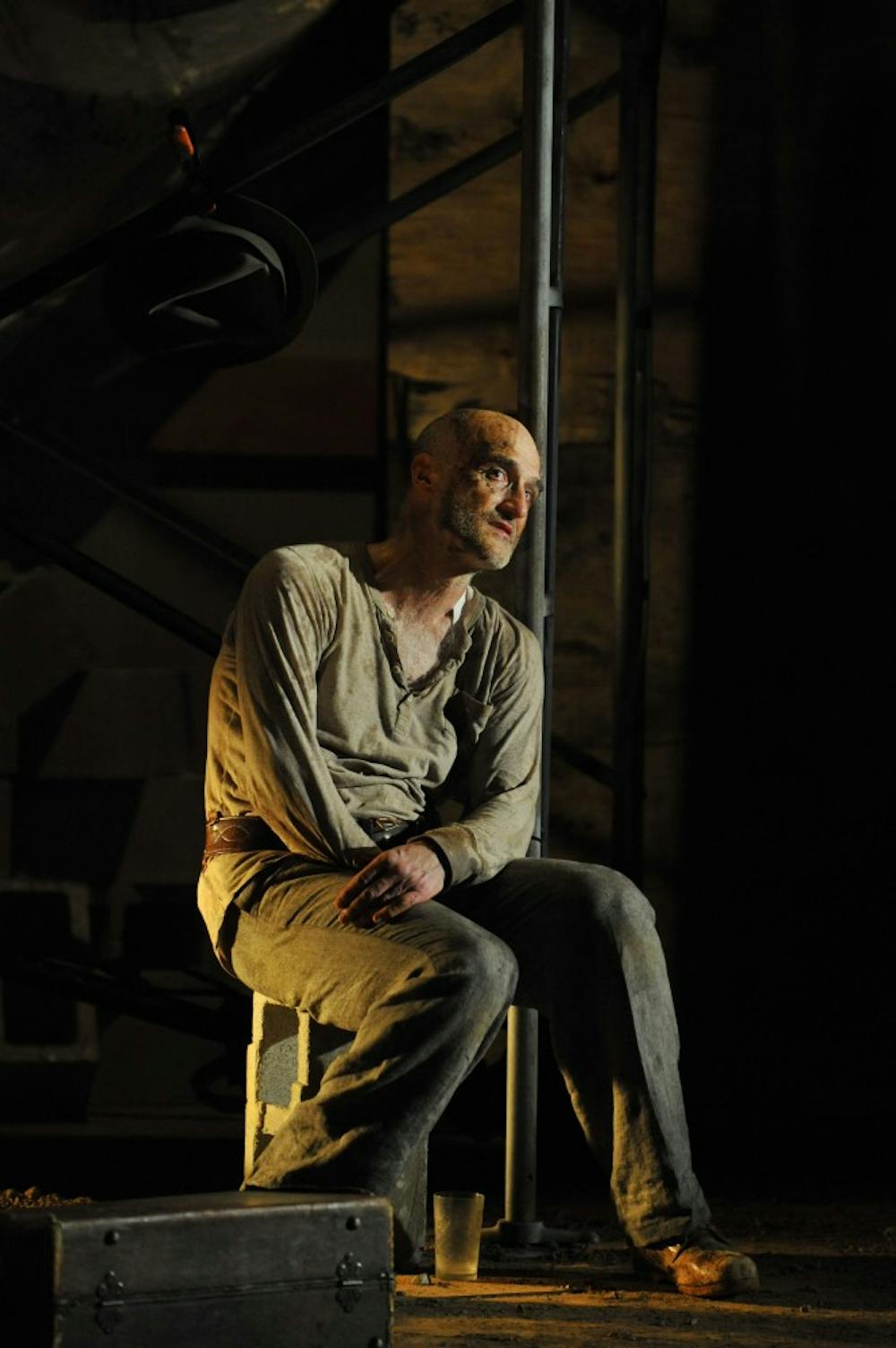Ray Dooley stood backstage as himself, but he burst through the doors as the Narrator.
He emerged onto a plywood-clad set, interspersed with a giant metal scaffolding, a pile of dirt and debris and a bucket of water hanging from a rope. He was wearing dirty jeans and a green trench coat with a matching hat.
Dooley is the only actor in “An Iliad,” the first play in the PRC2 second stage series of PlayMakers Repertory Company.
As the Narrator, Dooley played a tormented soul, a man cursed to retell the stories of war that he has witnessed for all of history, from the time of Babylon and Alexandria to today’s violent conflicts.
In the first five minutes of the Thursday night production, Dooley unhooked the rope barrier between himself and the audience — a literal breakage of the fourth wall, which remains broken for the show.
Dooley maintained an intense connection with the audience in the two-hour-long continuous scene.
Gazing out into the audience — almost through it — the neurotic guide began spinning his tale. As events unraveled, the Narrator lost himself in his words, hands shaking and getting lost in the memories he reached for.
In one moment of silence, a cell phone rang in the audience, but Dooley did not break character, responding, “Music?” Dooley’s intensity as the Narrator was captivating, and his emotions ebbed and flowed between calm and the epitome of rage.
While the Trojan War tale was a sincere plea against war, the Narrator implored the audience to understand the morality of war, its effects and human suffering.
He contextualized the brutality with metaphors easily understood by the modern audience, but this back and forth between times was at times a bit daunting and seemed slightly repetitive.
As the Narrator told of the death of Petroclus during battle, the plea against war reached an epic climax with an extremely physical scene atop the table on stage. His adrenaline pulsing, Dooley immersed himself in the rage that humans can possess.
Of all the scenes in the production, perhaps the most unsettling is a period when the Narrator lists all wars in history, from the Trojan war to today’s conflict in Syria.
The continuous listing, which lasted nearly five minutes, caused the audience’s rapt attention to waver, but the fact that Dooley had these memorized is a mark of his acting genius. After he rattled off a few wars, it was clear that the audience was in for the long-haul, and most people tuned out.
During the Trojan War narrative, Dooley aptly portrays all characters, from Athena to Helen and even Hector and Paris.
While there are light moments between the Narrator and the audience, his modern-day equivalencies bring this abridged version of Homer’s epic “The Iliad” to a much darker reality.
The Narrator is tormented, after having seen so much death and destruction in his time, and he leaves the audience with his chilling final words:
“You see?”
Assistant arts editor Carson Blackwelder saw “An Iliad” on Thursday, Sept. 6 at 7:30 p.m. He gives the show four stars out of five. See PlayMakers’ website for more details.
To get the day's news and headlines in your inbox each morning, sign up for our email newsletters.




